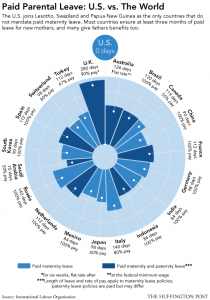John Dewey fails to educate society in Another Mass Shooting, a post which degrades progressive movements and perpetuates ignorance following the mass shooting in Las Vegas. The article summarizes events proceeding the attack, referencing Devin Kelley as a criminal and criticizing loose gun control for allowing the mass murder to occur. Dewey predominantly asks for improved conversation, led by experts and elitists, to improve gun ownership regulations. He prefers a Great Society where the individual is silence, wrongly assuming communication would thrive, “The only way we will be able to move past this is if we communicate. There are thousands of studies on this topic, and every citizen needs to work to try and understand the actual research, rather than just spewing their [uneducated] opinions… Then, and only then, we will be able to come to a gun control solution that works for everyone and actually passes into law.” He proposes that communication, orchestrated dogmatically by expert opinion, will be fostered in communities where the individual is lost. He mentions research, but gives no citation for his readers to study. Dewey’s Great Society ignores the isolated or abused, leaving children and the underprivileged behind in a race for education. Such mentality results in our current society, where the lower class is more likely to be exposed to gun violence and has limited access to expert opinion. And, if multiple classes are involved in the same shooting, the upper class will surely have the final word on innocence and blame. Gun violence targets underprivileged communities, women and minorities, limiting their positive liberties and restricting their potentials. Survivors of gun violence may struggle with physical damage or Post Traumatic Stress Disorder (PTSD), affecting their negative liberties by preventing them from being as happy or productive as they might have been without the shootings.
Individuals will care more others’ lives when aware of disorders resulting from violence, humanizing the reality of mass shootings. For the individual to best contribute to society and debate, they must be educated in gun control and the consequences of domestic violence. Women fail their rationalities when disregarding the abused rights of their fellows, limiting their sex from greatness and perpetuating oppressive behavior. Ignoring gun violence due to privileged experiences, assuming everyone has the same access to police protection and information on gun control, is preferring vanity over rationality. The rational desires informed communication, while the vain prefers lectures full of technical jargon and biases favoring the elite. Educating citizens will better representation in the gun control debate, trusting the integrities of individuals and allowing American citizens to decide on gun laws instead of politicians funded by large corporations like the National Rifle Association (NRA).
If our representatives truly favored the lives and liberties of civilians affected by shootings, they would restrict gun laws following mass shootings like the one in Las Vegas, instead of passing legislation prompted by NRA funding. Laws were already lax, as Dewey writes, before the shooting: “Kelley was able to pass the background check required to buy guns on four separate occasions and in two different states. In a time when we can share information across the world in just seconds, it is absurd that none of his history showed up.” Elected representatives clearly do not favor the lives of Americans still, considering recent legislation passed allowing guns to be carried across state lines. Despite the mass shooting, and others like it, politicians ignore research and silence conversations on restricting gun access. If the general public were better educated, they could elect officials who call for restrictions following mass shootings, instead of being duped into making it easier for people like Kelley to kill others and cause physical and psychological harm to survivors or families of those affected. Preferring ignorance to life is another type of vanity for fastidious sensualists who spread their unnatural biases by preventing gun control, themselves acting as instruments of tyranny and destruction.
Instead of demanding experts (who substitute simple terms with a jargon of words) to act as patriarchal magistrates in conversations about life and morality, we should encourage the individual, by means of reflection, to be educated so as to improve understanding, which can only render communication and society more agreeable. Our rational conscience is the most enlightened philosopher and will lead educated individuals to prevent further shootings, acting in the interests of life and liberty.



